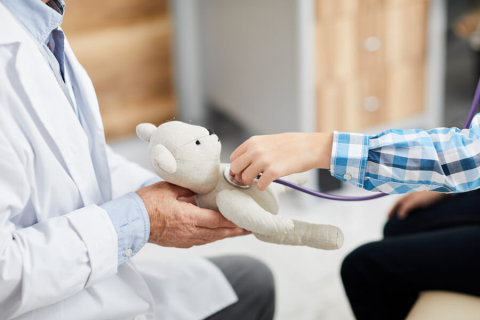The training will consist of two stages. The first one consists of 12 hours of workshops conducted using the so-called positive discipline techniques. It will also include a needs analysis of the medical facility. During the second stage, mentoring sessions will be conducted: two and four months after the workshop. Based on the course, a "Guide to positive relationships with the young patient" will be developed, including support procedures, scripts, solutions to support communication with the patient. A support group will also be established through the Facebook platform.
What is a positive discipline?
Positive discipline is a classic parenting method developed since 1981. It is based on respect and empathy, it supports the development of self-discipline, responsibility and independence in children of all ages. The most important components of positive discipline are: mutual respect, understanding the belief behind the behavior, effective communication, understanding the child's world, discipline that teaches, focusing on resolution rather than punishment, encouragement, and the assumption that children behave better when they feel better.
What will pediatricians learn?
Pediatricians will learn about, among other things, what a positive attitude is, how to be both kind and firm, how to name emotions and communicate empathetically. They will also learn how to handle difficult situations related to the behavior of children in the hospital, as well as how to motivate and encourage young patients to cooperate.
Participation in the Patient-Friendly Communication project provides a number of benefits, both for staff and the hospital, as well as patients and their parents. Thanks to the acquired competences, our physicians will streamline and accelerate medical procedures, reduce the level of stress resulting from ineffective communication. Not only will young patients be less anxious during their hospital stay, but they will also begin to interact better with the doctors and nurses caring for them. For parents, in addition to reduced stress and improved cooperation, satisfaction with care and trust in the medical staff will increase. Our university's participation in the project will also allow us to use the acquired skills and created tools in teaching MUW students.
In addition to the Children's Clinical Hospital UCC MUW, the course will be joined by four other institutions: the Children's Memorial Health Institute, the Professor Jan Bogdanowicz Children's Hospital, the Institute of Mother and Child, and the Bielański Hospital in Warsaw. Our hospital is the main coordinator of the project. The principal investigator is Monika Wanke-Rytt, MD, PhD - medical director of the Children's Clinical Hospital UCC MUW, specialist in children's diseases at the Department of Pediatrics with Clinical Assessment Unit.
A working meeting on the project was held last week with the representatives from MUW, the K.I.D.S. Foundation, Positive Discipline and Reckitt company. In attendance were: Prof. Paweł Włodarski, Vice Rector for International Relations, Development and Promotion, Dr. Monika Wanke-Rytt, Dr. Piotr Dziechciarz - Rector's Representative for Education Quality, Dr. Andrea Horvath - Rector's Representative for Education, from the K.I.D.S. Foundation: President Maciej Malenda, and Aleksandra Wysocka, from Positive Discipline: Joanna Baranowska, directly responsible for the communication training and Bożena Rutkowska and Magdalena Brodowska from Reckitt.
